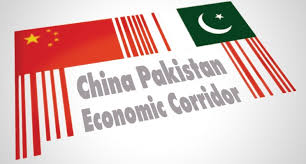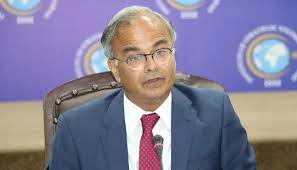CPEC’s high-quality development to play important role in revitalization of Pakistan: Chinese Scholar

China Economic Net
Beijing: The construction of China Pakistan Economic Corridor (CPEC) has entered a new stage of high-quality development, which will continue to play an important role in the revitalization of Pakistan, said Cheng Xizhong, a visiting professor at Southwest University of Political Science and Law.

“China and Pakistan will complete the projects under construction in time, create more jobs for Pakistanis, vigorously improve people’s livelihood, strengthen cooperation in industrial parks construction, human resource training, poverty alleviation, medical and health care, agriculture and other fields, and continuously release the great potential of CPEC and realize common development and progress,” he said in his article published by China Economic Net (CEN).
He said that the final Take-over Certificate (TOC) issuing ceremony of Peshawar-Karachi Motorway (PKM) Project (Sukkur-Multan section), the largest transportation infrastructure project of China-Pakistan Economic Corridor (CPEC) undertaken by China State Construction Engineering Corporation (CSCEC), was held in Multan, marking a formal opening to traffic and a perfect implementation of the project.
The PKM highway project is the abbreviation of Peshawar-Karachi Expressway. The expressway starts from Karachi in the south, passes through Hyderabad, Sukkur, Multan, Lahore, Islamabad and other cities, and ends at Peshawar in the north, with a total length of 1,152 km.
PKM was originally planned to start from Karachi, Pakistan’s largest city in the south, and reach Lahore, the second largest city in the north.
Now it is planned to extend to Peshawar, an important city in the northwest border. GDP of the areas along the project accounts for more than 90% of the total amount of Pakistan, with a population of 138 million. After completion, it will become an economic artery connecting the northern and southern part of Pakistan.
CSCEC has undertaken the PKM project (Sukkur-Multan section) in Engineering Procurement Construction (EPC) contract mode, and Export-Import Bank of China has provided financial support.
The total length of the project is 392 km; the design speed is 120 km/h with two-way six lanes; the contract period is 36 months; the contract value is about $2.889 billion.
CPEC, the important pilot project of “Belt and Road” and a landmark project of China-Pakistan cooperation, has made significant progress for last 5 years. A large number of projects have been completed, bringing about more than $25 billion direct investment to Pakistan.
Cheng said that China and Pakistan have jointly overcome challenges and promoted CPEC’s construction and have not withdrawn engineers working on CPEC projects nor laid off Pakistani workers since the outbreak of COVID-19 in Pakistan. Therefore, CPEC has made gratifying progress.
Recently, Metairie-Lahore transmission line, a key project of CPEC, was fully connected, further improving Pakistan’s power supply system.
On October 25, Orange Line Metro in Lahore was officially opened and put into operation, bringing Pakistan into the era of subway. Gwadar Port has handled two batches of fertilizer with a total of 26,000 tons transferred to Afghanistan, he added.
At present, the completed projects have greatly improved Pakistan’s transportation infrastructure and power supply, created more than 70,000 jobs for Pakistanis, contributed 1 to 2 percentage points to Pakistan’s GDP growth every year, and significantly promoted Pakistan’s economic and social development and people’s well-being, he said.





